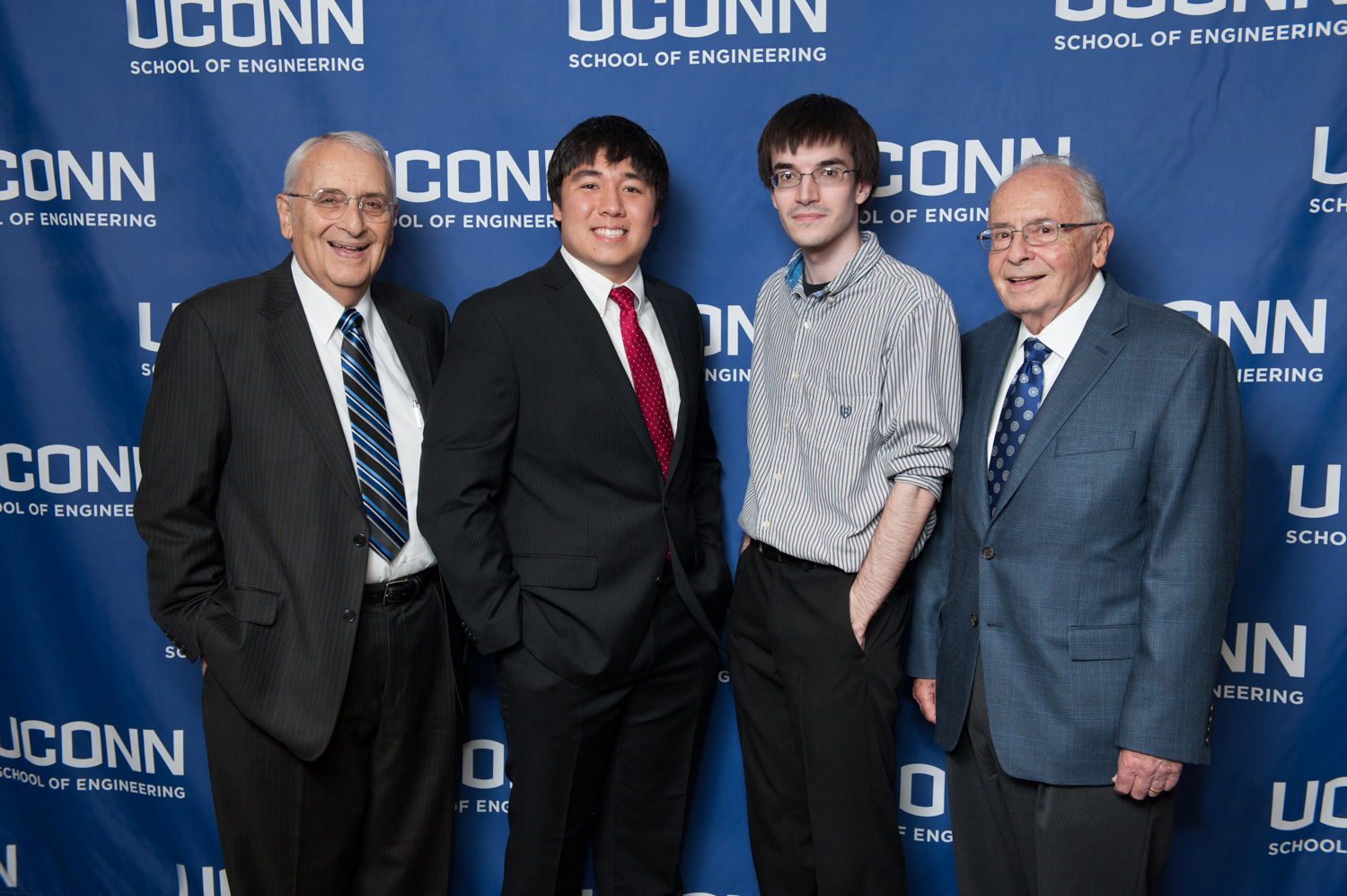In response to the growing need for cybersecurity experts, two University of Connecticut alumni brothers donated $1 million to launch the university’s cybersecurity instructional lab and develop a curriculum to meet the demands.
Samuel ’50 and Stephen Altschuler ’54, who earned bachelor’s degrees in electrical engineering, will cut the ribbon on the Altschuler Cybersecurity Lab, located on the first floor of the Information Technology Engineering (ITE) Building, this summer.
“We chose to make this gift because of the support we received from UConn when we were engineering students in the early 1950s,” said the brothers in a joint statement. “Our training enabled us to advance our careers to the point where we are financially able to make a gift of this size. Connecticut has been a major focus for us our entire lives, and we are proud to be able to make a meaningful contribution to its flagship university.
“We believe that cybersecurity is among the most critical issues of this age. In order to assure that society will be able to safely continue to use the ever-accelerating advancements of technology, the study of cybersecurity is crucial to the maintenance of peaceful cultures.”
The Altschuler Cybersecurity Lab will be the cornerstone of UConn’s effort to graduate engineers with expertise in cybersecurity, said School of Engineering Dean Kazem Kazerounian, who joined Donald Swinton, director of development for the School of Engineering, in pursuing the lab’s establishment.
“We are in an age where the threat of cyberattacks has gotten more pervasive. As an institution, we need to be training the next generation of engineers to combat this threat, which is why this gift from the Altschuler brothers is so important for the School of Engineering and the University,” said Kazerounian.
When launched, the lab will teach hands-on cybersecurity to all Computer Science and Engineering Department freshmen, as well as additional members of the department’s 800 undergraduate and 150 graduate student population.
A special first-year curriculum will cover such areas as cyber-hygiene in software and hardware; the vulnerabilities in commercial-off-the-shelf devices and Internet-of-Things devices; and ensuring the security and integrity of electronic election and voting systems, smart power-meters and power grid devices. The curriculum will also cover website security, secure configuration of networks and networked systems, and security of network routing.
“The establishment of this cybersecurity laboratory is wonderful news for Connecticut,” said Arthur H. House, the state’s chief cybersecurity officer. “It will enhance UConn’s academic strength and partnership in the ongoing effort to understand and counter evolving cyber threats to the state’s government agencies, businesses, and organizations.”
Mark Raymond, Connecticut’s chief information officer, agrees. “One of the fundamental principles of the state’s cybersecurity strategy is cybersecurity literacy. The strategy calls for all sectors to reduce cybersecurity risks through education and awareness. The laboratory at UConn will play a critical role in developing the next-generation cybersecurity skills required to keep our state’s citizens and business safe.”
After graduating from UConn, Samuel Altschuler earned an MBA from Northeastern University in 1958 and founded Altron, Inc., where he was the chairman and president, until his retirement. Stephen Altschuler went on to earn his master’s in engineering from Yale University in 1955. He is the founder, president, and chairman of Altek Electronics. He also served on UConn’s Board of Trustees from 1986-1993.
“We recognize that Dean Kazerounian and his staff have assembled a first-class faculty to be stewards of the cybersecurity specialty, and we are highly motivated to support it,” said the Altschuler brothers, who have also funded scholarships to UConn’s engineering students.
As faculty in the new lab pursue this work, they will partner with faculty in other areas, such as the state’s Voting Technology Research Center, which evaluates Connecticut’s voting machines and audits results for cyberattacks; and industry partners, such as Synchrony Financial and Comcast companies, which support cybersecurity research and host annual cybersecurity conferences.



